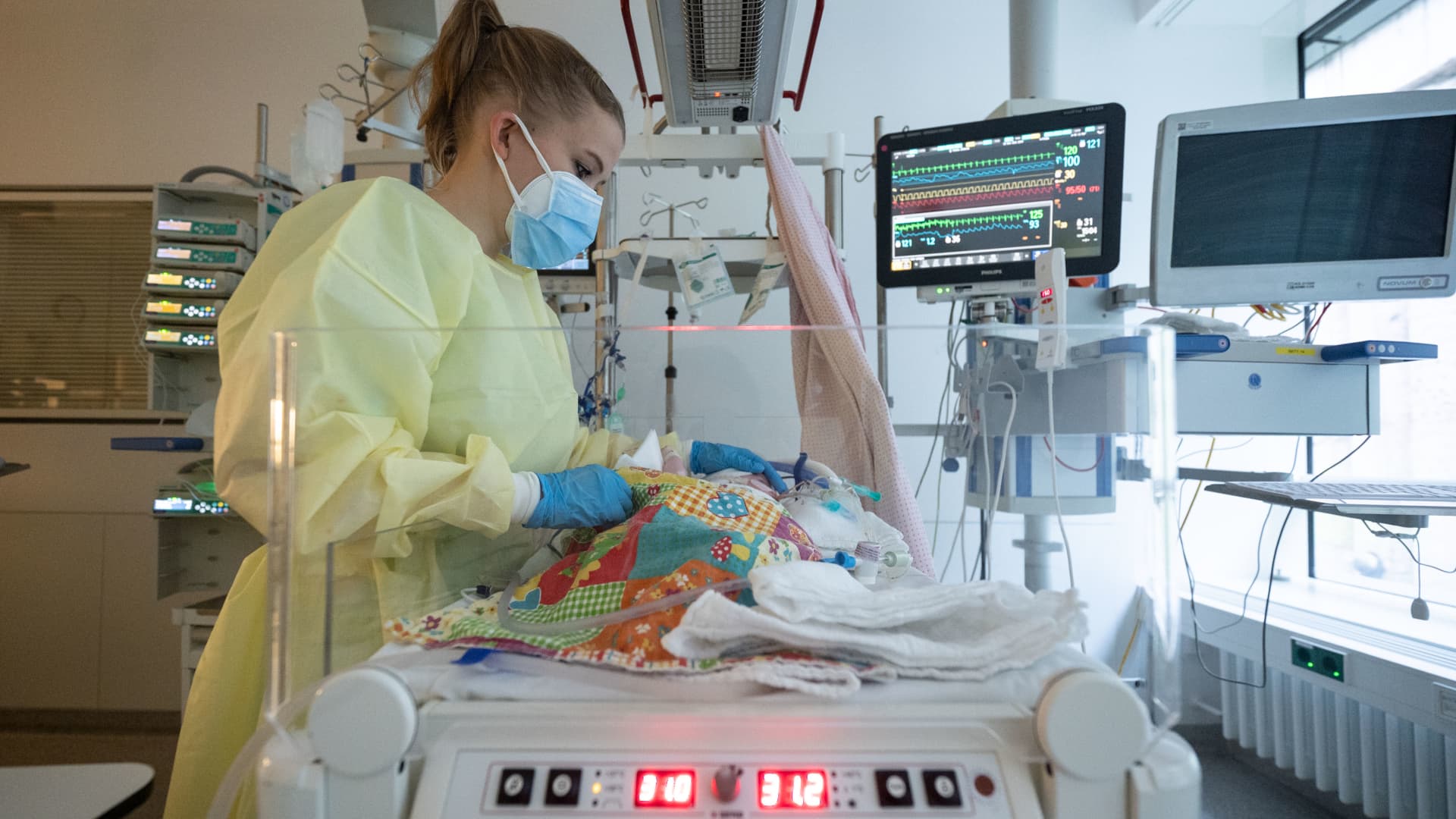
Pfizer’s vaccine against respiratory syncytial virus, or RSV, is highly effective at protecting newborns when the shot is given to the mothers late in their pregnancy, according to clinical trial data published Tuesday.
RSV is a common respiratory virus that generally causes mild cold-like symptoms, but it can be dangerous for infants younger than 6 months.
Pfizer’s data showed that in the first 90 days of the baby’s life, the vaccine was 81% effective at preventing severe lower respiratory tract illnesses that require hospitalization or assisted breathing.
In the infant’s first six months of life, the vaccine was about 70% effective at preventing severe illness requiring hospitalization or assisted breathing, according to Pfizer’s data.
Pfizer said it will submit an application to the Food and Drug Administration for the vaccine’s approval by the end of 2022. The company said it will also submit the results for peer review.
The vaccine is the first to demonstrate that it can protect infants against severe RSV immediately after birth, according to Annaliesa Anderson, Pfizer’s head of vaccine development.
The shot is administered as a single dose to the mother in the late second or third trimester of her pregnancy. Pfizer’s clinical trial followed 7,400 pregnant mothers ages 49 and younger.
The vaccine was well tolerated with no safety concerns for the mothers or their newborns, according to Pfizer. The mothers were monitored for six months after delivery for any safety concerns, while the babies were followed for at least a year.
The vaccine was also 57% effective at preventing lower respiratory tract infections that require doctor visits in the baby’s first 90 days. Although this outcome did not meet the clinical trial’s statistical milestone for success, it is clinically meaningful, according to Pfizer.
As many as 2 in 100 babies younger than 6 months who catch RSV are hospitalized. They may need oxygen, intubation or a mechanical ventilator to help with breathing, according to the Centers for Disease Control and Prevention.
The CDC has warned that RSV is reaching peak levels in some regions already. An estimated 58,000 kids under 5 years old are hospitalized with the virus every year, according to the CDC.
Symptoms include runny nose, loss of appetite, and a cough that can progress to wheezing.
Infants almost always show symptoms, but for babies younger than six months these symptoms can be more subtle, according to the CDC. RSV does not always result in a fever.
Irritability, decreased activity and appetite, as well as pausing while breathing are all signs that an infant might have RSV, according to the CDC.







